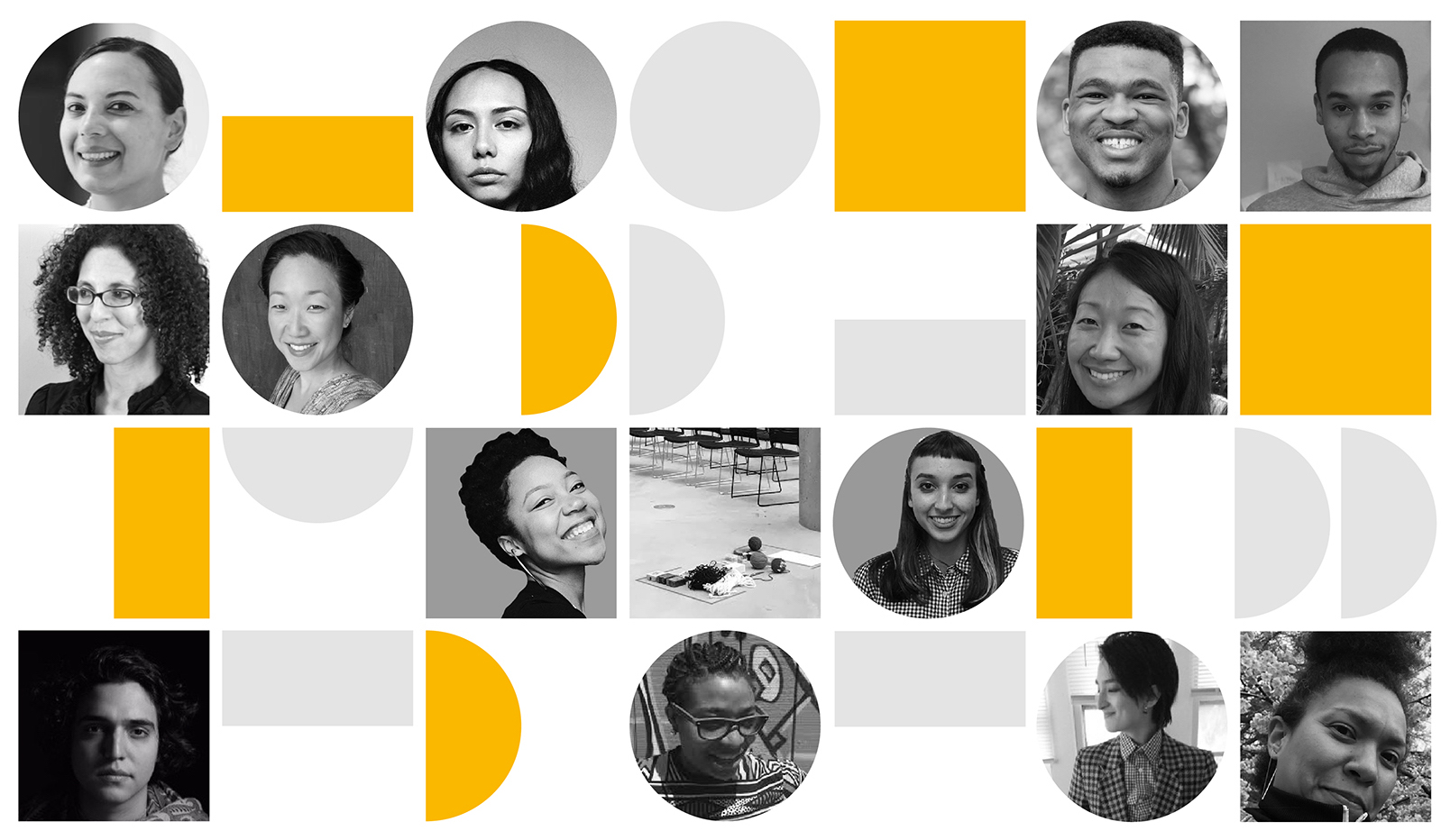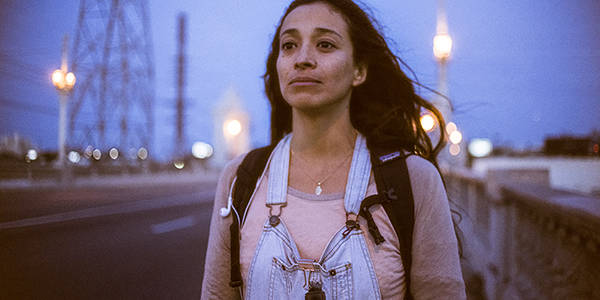ANTIRACIST CLASSROOM HOSTS TWO-DAY CONVENING 'RECONSTRUCTING PRACTICE: TOWARD AN ANTIRACIST ART AND DESIGN FIELD'
Media Design Practices students Lauren Williams and Nidhi Singh Rathore and alumnae Godiva Veliganilao Reisenbichler (MFA 18) and Bianca Nozaki-Nasser (MFA 18) are core organizers of The Antiracist Classroom’s convening Reconstructing Practice.
On Friday, July 13 and Saturday, July 14, The Antiracist Classroom, a student-led organization at ArtCenter College of Design, will host the two-day convening Reconstructing Practice.
At Reconstructing Practice, participants will explore the ways artists, designers and technologists approach and enact anti-racist practices in a variety of settings: from academia, to museums, to communities of practice, and even neighborhoods. The program features over 10 sessions in which speakers and participants will be able to share their work and reflections through a gallery exhibit, generative workshops, critical discussions, debates, personal storytelling, collective making and group listening.

The Antiracist Classroom initially emerged in the fall of 2017 as a response to the racialized daily experiences of students of color at ArtCenter. Members sought a space where they could safely air grievances, strategize about ways to construct more racial equity in their classrooms, and challenge the College to critically reflect on and address racist practices embedded in its institutional fabric. This event represents an evolution of this internal student group: What can we learn from students, educators, and administrators at other institutions of higher learning or outside of academia altogether that might inform our efforts? How might we harness the collective energy and expertise of other anti-racist organizers to advance a vision of racially equitable practice beyond ArtCenter’s walls?
Contributors to this convening come from within ArtCenter and around the world. The session facilitators represent a wide range of fields that intersect with art, design and technology. In their session, “Epistemic Interfaces: Art, Design, and Technology,” Katherine Moriwaki, assistant professor of media design at Parsons School of Design, and Cristina Stephany, an instructional designer and teacher supervisor at California State University Dominguez Hills, will examine how dominant western epistemological frames around innovation shape the ways we learn-by-doing and explore how to craft an anti-racist practice through self-reflection.
ArtCenter Photography and Imaging student Ash Alexander and School of Visual Arts faculty Jennifer Rittner will collaborate in “Interrogating Pedagogy: Justice in the Core” by questioning how curricula might reinforce or disrupt white supremacy in the classroom. Co-founders and former research fellows from At Land’s Edge—an autonomous pedagogical platform based in East and South Los Angeles—will reflect on the evolution and future directions of their organization whose mission is to nurture the voices of cultural producers committed to social transformation.
Other sessions will explore what it takes to create a learning environment in which artists and designers of color can thrive; articulate the role of studio critique in service of racial equity and inclusion; and consider how we might practice design responsibly and equitably in contexts that typically exclude or devalue people of color as designers or decision-makers.

The gallery at Reconstructing Practice—opening to the public on the afternoon of July 13—will be filled with work that celebrates and examines the complexity and breadth of racialized identities, critiques art and design education, and materializes the ties between art and activism. Several ArtCenter students and alumni will exhibit work in the gallery, including Danny Perez, Ash Alexander, Bryan Ortega, Joanne Lee and Luis Zepeda. Alongside them, artists from New York, Thailand and Mexico will contribute pieces as well. The gallery’s opening will be punctuated by a performance from Brooklyn-based interdisciplinary artist, designer, creative technologist and activist Ari Melenciano. Melenciano’s performance Alaïa’s Lab is a living, breathing installation with DJing, live beat making, live drawing and sound interactive visuals that respond to the construction and deconstruction of the Black identity, the commodification and expression of culture, and the nuances of Blackness.
As core organizers, we aim to highlight work and creators that offer new, different and important ways of explicitly disrupting and dismantling racism in our fields. We are grateful for the financial, spatial and in-kind support from the following contributors that equipped us to host this event, feed participants and take up space at ArtCenter: the ArtCenter Research Committee, the Humanities and Sciences Department, the graduate Media Design Practices program, the Office of the Provost, Designmatters, and the Chairs Council. We are also mindful of the reality that our critiques are levied with and against these supporters, and look forward to productively engaging with ArtCenter as an institution through this forum and beyond.
We believe that anti-racism as a practice needs to redefine and reshape what art and design practices look like at a larger scale. Anti-racist work can be isolating, rewarding, nebulous, slow and exhausting. We are especially grateful to the artists, facilitators, volunteers, ArtCenter staff and Antiracist Classroom advisors who have and will put in time, support and energy to help us bring this event to life. Above all, we believe that holding space for an event like this is both necessary and long overdue: Our hope is that this event extends beyond these two days in Pasadena. We want participants to feel affirmed and take with them new frameworks of working, a sense of urgency, meaningful connections and inspiration.
Individuals interested in participating in Reconstructing Practice sessions should register at the convening’s Eventbrite page before July 6. Individuals interested in only attending the gallery opening on July 13 from 5–8 p.m. should visit the gallery opening's Facebook page.






